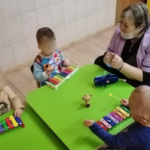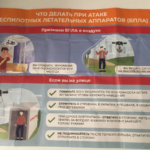Russia and native nations: Idel Realii review

Editorial board of Idel.Realii (popular Povolzhye web-portal) have published an article about reports and statements of international organizations in defense of native peoples in Russian Federation.
Journalist Ramazan Alpaut suggests to recall and summarize these statements. Last year civic actions and human rights events took place in different countries in order to protect rights of native peoples in Russia. Most European organizations (including OSCE and CE), parliaments of several states, as well as representatives of Human Rights Watch and European language equality network (ELEN) reacted to the situation.
Report on Moscow’s language policy in 2014-2018 was obtained by Idel.Realii at the beginning of 2019. In January 2019 the Advisory Committee of Framework Convention for the Protection of National Minorities of CE criticized Russian Federation for its national policy. Experts expressed deep disturbance because of “growing domination of Russian language” combined with “absence of effective support of national minorities languages”. In response to this Moscow called the report as “prejudiced”.
At the beginning of March 2019 Idel.Realii published a report by European Commission against Racism and Intolerance (ECRI) with Russian policy in 2013-2018 being analyzed. The report, moreover, criticizes Russia for frequent cases of racism and politically motivated long-term convictions of Muslims. It was also mentioned that local political and religious leaders pronounced quite a bit homophobic, transphobic, racist and hate-speech expressions. In opinion of the report’s authors, anti-LGBT rhetoric has evolved into one of the most widespread forms of hate speech. Russian Federation does not agree with these conclusions.
By the end of spring-2019 Ukrainian MPs took a step, referred to already in 2018. On May 30 Verkhovna Rada (Parliament) of Ukraine approved resolution draft №10125 on the address of Rada to international community on new sanctions against Russia because of violation of native peoples’ rights in Russian Federation.
The document enumerates specific steps of Russian Federation, that must be condemned, including criminal pursuit of Bashkir politician Airat Dilmukhametov, activist of Azatliq – Union of Tatar youth Batyrkhan Agzamov, leader of Bashkort cultural society Fayil Alsinov and many other activists; and also interference in the work of native peoples’ religious communities, particularly by including sacred books of traditional Mari religion into federal list of extremist literature.
Recent discriminatory changes in federal Russian law “On education” also have not gone unnoticed by authors of the draft: new amendments allow not to study official languages of national republics of Russian Federation in educational establishments (schools, colleges and universities).
In 2018 Idel.Realii spoke with Lamberto Zannier, the High Commissioner on National Minorities at the OSCE. Then he said, that plans to visit Russia. On July 24 Zannier visited Tatarstan. During the visit High Commissioner noted the shortcomings of language situation in Russia. He said, particularly, that according to his information possibilities to study native language and culture for ethnic Tatars still remain quite limited in Tatarstan, although Tatar also is one of official languages in the republic. Zannier was also “surprised”, that Russian language is the only option to pass federal Unified State Exam in Tatarstan.
On September 10, 2019 in Izhevsk (capital of Udmurt Republic) scientist Albert Razin accomplished self-immolation. By such drastic act he demanded to protect Udmurt nation and its language from total and violent Russification. Razin’s feat encouraged activists from the different regions of country to demand making national languages as mandatory subjects again, and widely resonated far beyond Russia.
On September 11 speaker of Estonian Riigikogu (Parliament) Henn Pilluaas express his regret that Udmurt scientist was forced resort to such hard self-immolation action against language policy in Russia. He reminded that World Congress of Finno-Ugric Peoples would take in 2020 in Estonian city of Tartu; “where, undoubtedly, language problems” are going to be carefully considered. Officials from Finland and Hungary ignored Razin’s tragedy as well as Idel.Realii’s comment requests in relation to this dramatic event.
On October 7, European language equality network (ELEN) – ungovernmental organization that protects and popularizes European less widely used languages – appealed to Chairman of State Council of Udmurtia Alexei Prasolov and other politicians of Russian Federation in connection with the act of Razin’s self-immolation. ELEN encouraged Russian authorities to inplement new measures for protection and popularization of Udmurt language, and also languages of all native peoples of Russia. That was ELEN’s reaction upon request of Idel.Realii to comment on action of Udmurt scientist.
State Council of Udmurtia however ignored ELEN’s call to implement school education in Udmurt language at least in areas and communities with large Udmurt populations.
– We are disappointed that our letter remained unanswered, we still expect some answer from State Council of Udmurtia, – Dr. Davyth Hicks, ELEN Secretary-General, commented.
Human Rights Watch called Russian Federation not to deport Shakhrizat Shavkat and Shakhdiyar Shavkat to China. Human rights defenders consider that sending of two brothers into Xinjiang Uygur Autonomous Region is impermissible because of the threats facing.
It has to be reminded that Shavkat brothers were expelled from Kazan federal university (KFU), however they wrote statements on renewal –they are not reviewed yet, however students already visit their lectures. Lawyer Ruslan Nagiev explained that KFU would not consider brothers’ statement because they stay on territory of Russian Federation illegally.
Federalist union of European national minorities (FUEN) appealed to Russian education minister with a request to revise his position regarding optional study of national languages. Thus FUEN responded to Free Idel-Ural’s request dated 17.10.2018 on violation of native peoples’ rights to get education in their mother tongues.
FUEN called State Council of Tatarstan to revise its resolution dated November 29, 2017 on study of Tatar language as obligatory educational discipline in Republic of Tatarstan. According to the document Tatar language was deprived of its function as state language in educational domain, obligatory study was actually forbidden. On this occasion Chairman of committee on culture, education, science and national issuea of State Council of Tatarstan Raziv Valeyev declared that “issues of obligatory study of Tatar language are not decided here by State Council of Tatarstan – this question has to be decided by federal Department of education and science of Russian Federation”.


Leave a Reply